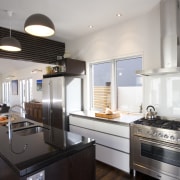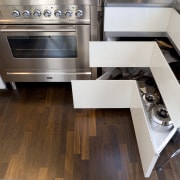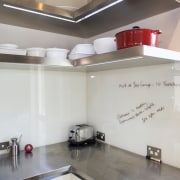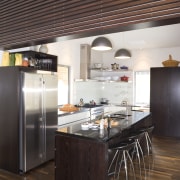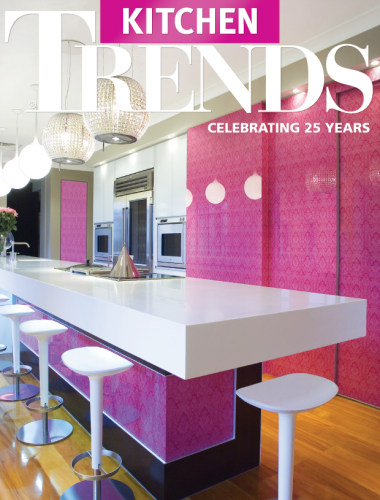Close quarters
The low ceiling of this kitchen keeps it visually separate from the rest of the living space
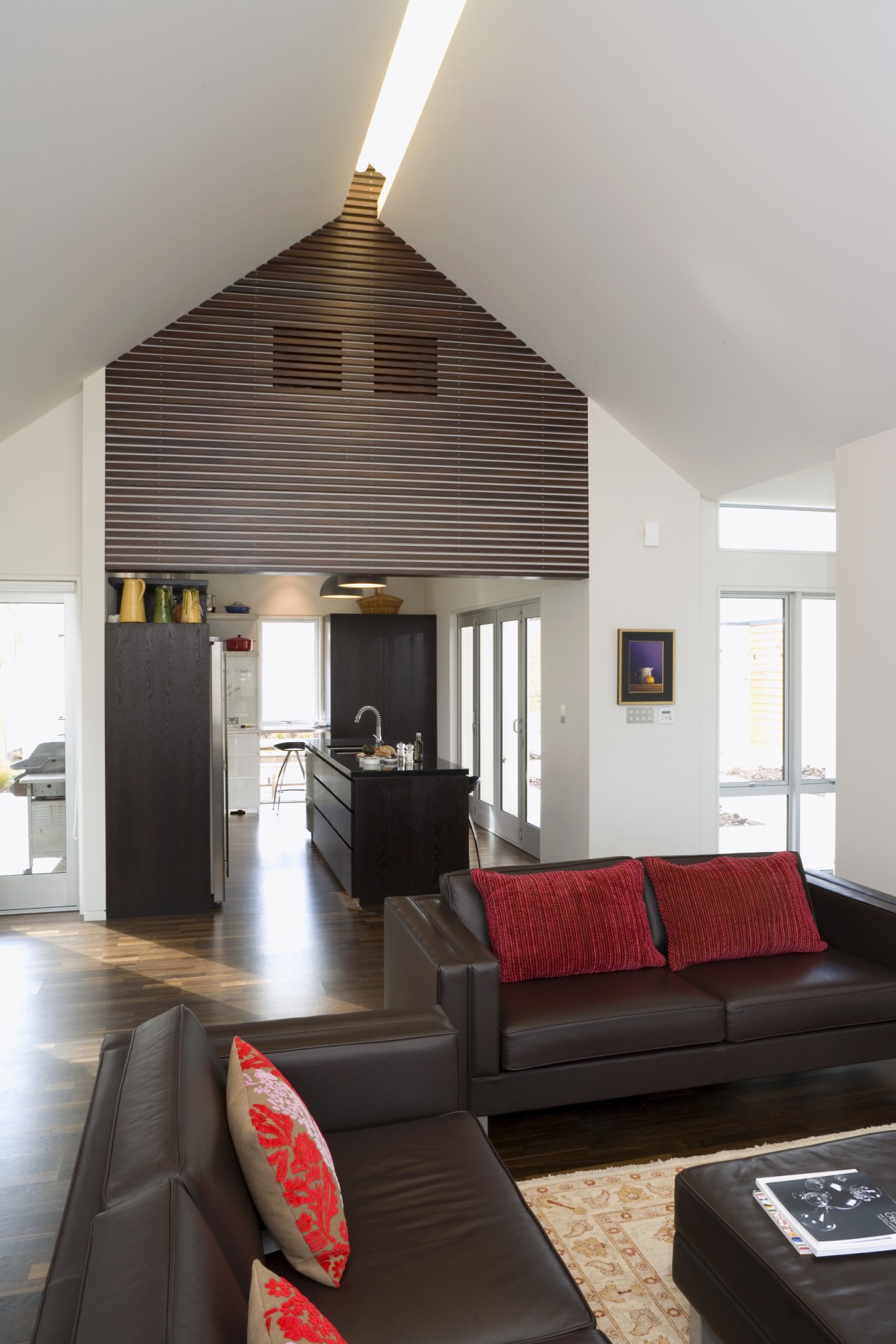
In recent times, it has become commonplace for a house to centre around its kitchen. While this may be desirable in your primary residence, in a holiday home, you will probably want to spend more time with your feet up and less time preparing meals. As a result, many holiday homeowners are now opting for a more intimate space that is compact and functional. The kitchen shown here sits in the corner of the house and achieves visual separation without losing accessibility.
Designer Rebecca McLaughlan, of Modern Architecture Partners, says she and architect Kerry Mason were constantly aware of the effect that changes in ceiling height had on the way the spaces interacted with each other.
"Logistically, it is preferable to have the kitchen close to the dining and living spaces, but as a service area, there needs to be a degree of separation, even if only perceptually. Lowering the kitchen ceiling achieved this separation and gave a more intimate feel," says McLaughlan.
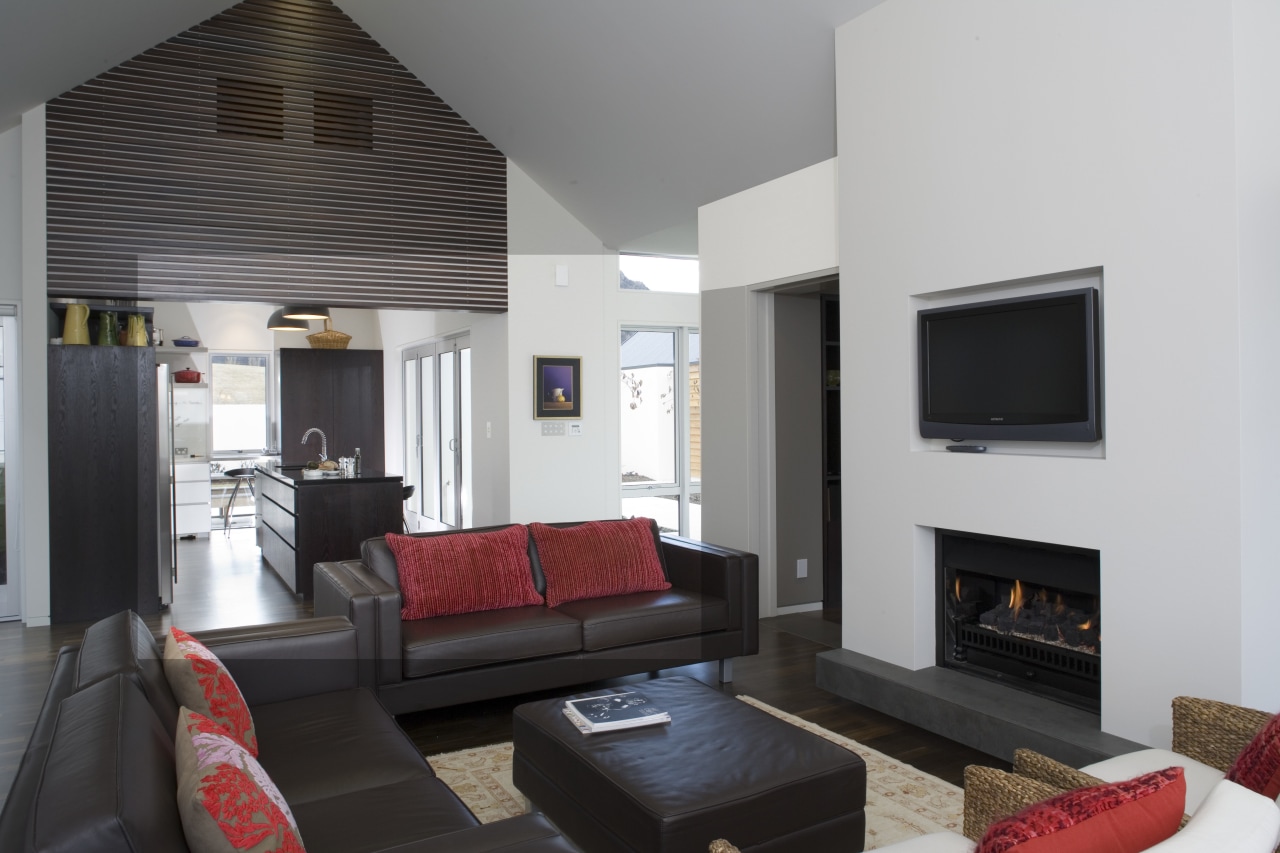
While subtle spatial considerations change the way the room feels, a kitchen is first and foremost a functional place, so the designers had to pay special attention to the way it was set up for the user.
"The owners spend a lot of time at the house on their own, so the kitchen didn't need to be huge. But it also needed to accommodate visiting family, so we designed the central island to allow easy access to cooking equipment, as well as a smooth flow to the front patio," she says.
Both designers had initially warmed to the idea of having an industrial feel in the kitchen and had planned to incorporate stainless steel drawer fronts. But as the house took shape, they moved away from stainless steel and instead specified back-painted glass, which gave the kitchen a slick, hard-edged finish.
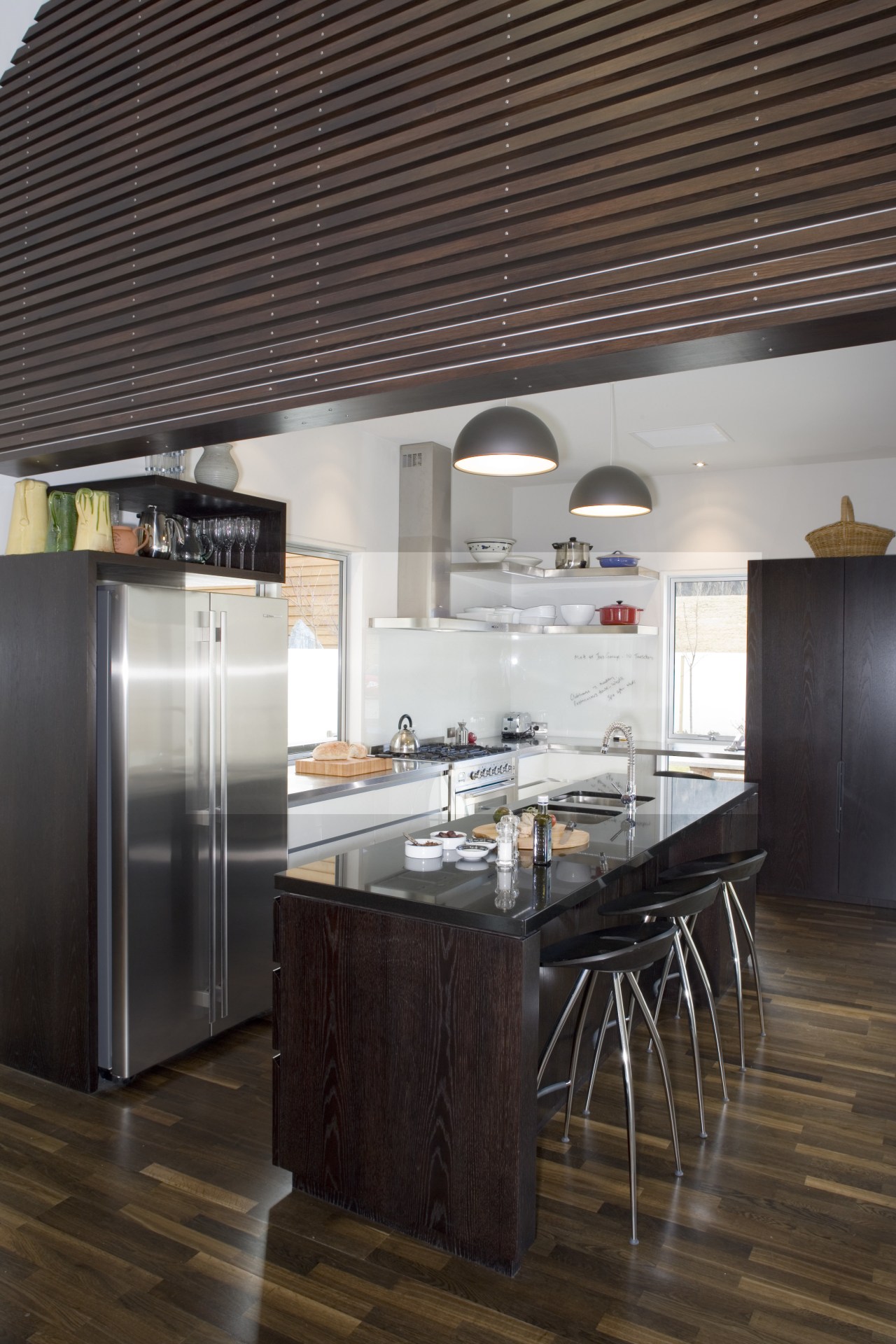
The owner wanted blackboards that she could scribble grocery lists on, but after using glass for the drawer fronts, it made sense to restrict the material palette to get a more consistent feel. A temporary marker enables the homeowner to write her grocery lists without marking the glass.
Throughout the house, the architects separated individual spaces by making subtle changes to the material palette. In many cases, they used American white oak timber veneer to denote formal areas. But the wood was incongruous with the relaxed air they wanted in the kitchen, so they used it more judiciously, substituting back-painted glass and stainless steel in its place.
Credit list
Builder
Cabinetry
Splashback
Ventilation
Dishwasher
Project manager
Benchtops
Taps
Refrigeration
Waste disposal
Story by: Anthony Coates
Home kitchen bathroom commercial design
Sculpted by the wind and sun
Light and refined
Expanded presence

